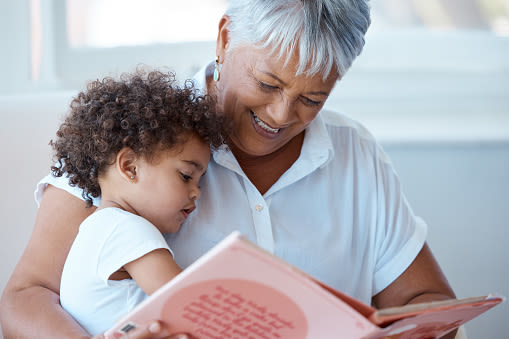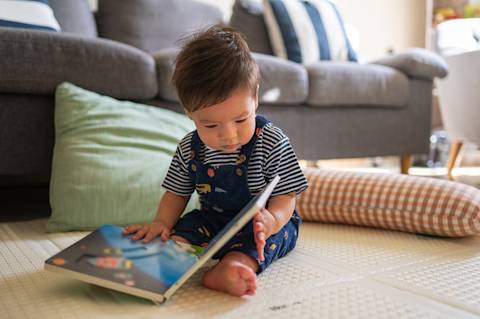When a parent is incarcerated, their children can experience a wide range of emotions and challenges. The separation can be overwhelming and confusing for young children, and it is essential for caregivers to provide loving support during this time to help their children cope with the change.

This is likely a very challenging and overwhelming time for you as the primary caregiver and your child. While you’re probably doing everything you can, the most important thing you can do is show your child that they are loved, and keep their lives as consistent as possible. If you’re looking for additional ways to support your child in this process, we’ve provided some ideas:
Create a safe, supportive, and predictable environment: A supportive and stable environment can help children feel secure and loved, reducing the impact of their parent's incarceration. Make sure to create consistent routines, set clear boundaries, and provide plenty of physical affection and reassurance, all of which can help them become more emotionally resilient in this difficult time. Big life changes can be very scary for children—and adults—because they can feel out of control of their lives. Creating routines and a sense of predictability can help them feel more in control.
Maintain open communication: Encourage your child to express their feelings and ask questions about their parent's incarceration. Listen empathetically and validate their emotions. Let them know that it is normal to feel a wide range of emotions, such as sadness, anger, and confusion.
Provide honest and age-appropriate answers to their questions: Depending on their age, children may have different questions and concerns about their parent's incarceration. Explain the situation in a way they can understand, avoiding unnecessary details and focusing on the fact that the child isn’t at fault in any way.
For toddlers (1–2 years old): At this age, children may not fully understand the concept of incarceration, but they will likely sense their parent’s absence. It's essential to provide reassurance and stability during this time. You can try using simple language like: “Mommy/Daddy is away for a while and can't be with us right now. They still love you very much, and I will be here to take care of you.”
For preschoolers (3–5 years old): Preschoolers are more capable of understanding basic concepts, but it's still essential to use age-appropriate language. You can try explaining the situation using words like: “Mommy/Daddy is in a place called jail/prison. They have to be there for a while. They still love you very much, and I will be here to take care of you.”
Teach healthy strategies to cope with big feelings: This can include engaging in calming activities such as coloring, breathing exercises, or physical activity. You can also try reading books or stories that address parental incarceration to help your child understand the situation better. Two recommended books include:
The Night Dad Went to Jail: What to Expect When Someone You Love Goes to Jail by Melissa Higgins
Visiting Day by Jacqueline Woodson
Help maintain a connection with the incarcerated parent: Encourage your child to maintain a relationship with their incarcerated parent, if appropriate and possible. This can include writing letters, talking on the phone, or visiting the parent in prison. Make sure to prepare your child for the visit, explaining the rules and what to expect during the visit.
Seek professional help if needed: If your child is struggling with their emotions or exhibiting signs of depression, anxiety, or behavioral issues, consider seeking professional help from a mental health professional who has experience working with children of incarcerated parents.
Utilize available resources: There are several organizations and resources available to support children of incarcerated parents and their caregivers. Some of these include:
The National Resource Center on Children and Families of the Incarcerated: Offers information, resources, and support for children of incarcerated parents and their caregivers
Sesame Street in Communities: Provides resources and activities to help children of incarcerated parents cope with their parent's absence
Big Brothers Big Sisters: Matches children with adult mentors to provide support and guidance
By continuing to provide a loving, supportive environment and helping children cope with their emotions, caregivers can play a critical role in lessening the effects of parental incarceration. Remember to be patient with your child and yourself as you navigate this challenging experience.






